Announcing the 2023 NNI Graduate Student Research & Travel Awardees
The Native Nations Institute announced their intention to deliver five Student Research & Travel Awards for 2023.
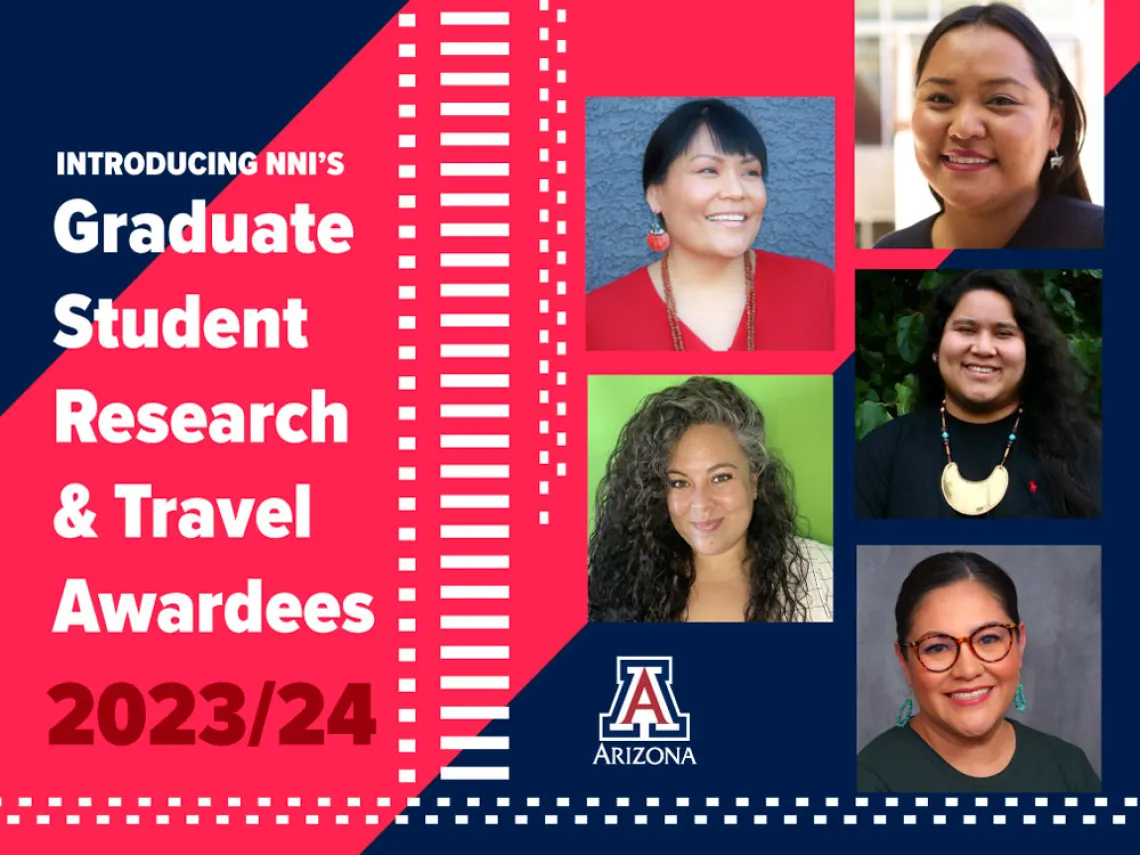
Every year since 2016, the Native Nations Institute (NNI) has distributed multiple awards of up to $2,500 each to graduate students conducting research projects or work on contemporary Indigenous issues with practical policy implications and/or the potential to be of interest to Native leaders and decision makers. The awards help recipients advance their educational goals.
The Native Nations Institute Graduate Student Research & Travel Awards are open to any student pursuing an advanced degree in the U.S. with preference given to students of Native American or Indigenous descent and those studying at UArizona.
Funds can be spent to help meet a number of academic needs including paying for travel, conference registration, honoraria, equipment, data and more.
This year’s cohort comprises graduate students from five institutions in a diverse range of academic fields and interests that include self-help housing, Indigenous data sovereignty, community development, trauma-informed psychotherapy and documenting the stories of Indigenous professionals in higher education.
Read on to meet the five students selected as the 2023 NNI Graduate Student Research & Travel Awardees.
Meet the 2023 Student Research & Travel Awardees
Elisha Charley
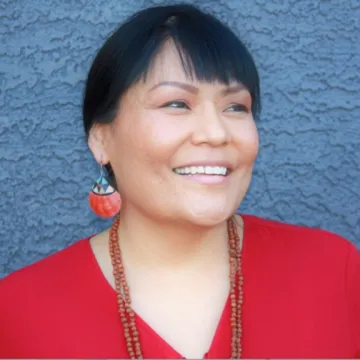
Course of Study: Urban Planning Ph.D.
Institution: Arizona State University
Use of Funds: Travel, lodging and registration for the 2023 Western Planner / Alaska APA Conference
Elisha Charley, MCRP (Nihok'aa Diyin Dine'e/Navajo) grew up in Dennehotso, Ariz., in the northern reaches of the Navajo Nation. She is Bit’ahnii (folded arms people) born for Deeshchii’nii (start of the red streak people), carrying her maternal grandfather’s Tabaaha clan (waters edge people), and her paternal grandfather’s Táchii’nii clan (red running into the water people). Her research centers on Indigenous planning and co-creating dialogues on housing data justice and self-help housing in the Navajo Nation. Charley developed an interest in participatory design, cooperative residential construction and owner-builder, or “self-help,” housing by watching her parents build and co-manage construction projects in their family home, surrounding housing production and livestock structures. These experiences inspired Elisha to pursue higher education in the design and planning disciplines. She continues her participatory advocacy as an Indigenous Research Fellow with the Nááts'íilid Initiative in her hometown, where she engages with Navajo communities and advocates for reciprocity through community vitality.
Crystal LoudHawk-Hedgepeth

Course of Study: Indigenous and Rural Health Ph.D.
Institution: Montana State University
Use of Funds: Equipment and software access to study the Institutional Review Board landscape of Montana Tribal Colleges and Universities
Crystal LoudHawk-Hedgepeth, M.Ed, MSCS (Diné/Navajo) is Ta’neeszahnii (Tangle) born for Bįįh bitoodnii (Deer Spring) from Sanostee, N.M. She currently resides in Denver, Colo. LudHawk-Hedgepeth has more than a decade of research experience focusing on cardiovascular disease and building partnerships between community-academic investigators to reduce health disparities. She works as a Senior Program Officer of Research at the American Indian College Fund, where she helps execute the organization’s systematic research initiatives, provides guidance on the College Fund’s research agenda, and expands the Office of Research & Evaluation framework by enhancing student success at Tribal Colleges and Universities. She enjoys serving Native communities and is dedicated to understanding and building opportunities for each community she serves. Her research interests are grounded in community-academic partnership, research ethics, Tribal communities, community-engaged research and Indigenous research methods.
Michaela Shirley
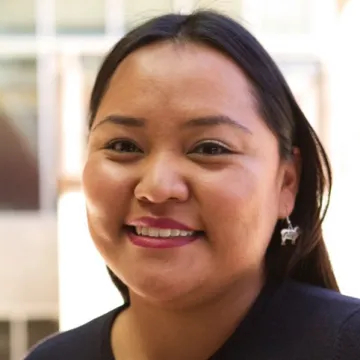
Course of Study: American Studies Ph.D.
Institution: University of New Mexico
Use of Funds: Travel, lodging and registration for the 2023 Association of Collegiate Schools of Planning Conference
Michaela Paulette Shirley, MCRP (Diné/Navajo) is Water Edge clan, born for Bitter Water clan. Her maternal grandfather is Salt clan and her paternal grandfather is Coyote Pass clan. She is a program manager for the Indigenous Design and Planning Institute at the University of New Mexico, where she is also a Ph.D. student in the American Studies program. Her areas of expertise include urban planning, community development and Indigenous planning with research interests in community-school relationships, biographies of landscape, Diné studies, critical Indigenous studies, critical regional studies and hemispheric Indigenous comparative studies. Shirley regularly offers keynotes, leads workshops and community engagement activities and provides other services for professional conferences. She has published about Indigenous planning, creative placemaking/place-knowing and Diné-centered arts management. Her service work includes acting as a School Board Member on the Dził Ditł’ooí School of Empowerment, Action, and Perseverance Public Charter School; serving on a steering committee of the Planners Network and serving as a committee member of the National Tribal Brownfields Networking Group. Shirley is also the co-founder of an artist cooperative called Vital Little Plans.
Bianca Villaseñor
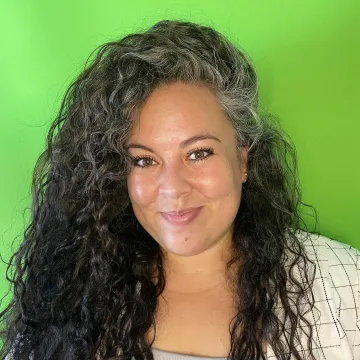
Course of Study: Clinical Psychology Psy.D.
Institution: California School of Professional Psychology at Alliant International University, San Diego
Use of Funds: Equipment and software access, as well as compensating a research assistant to aid in coding processes
Bianca Villaseñor is pursuing her doctorate in clinical psychology. She is the proud granddaughter of Mexican American farmworkers who sacrificed for her present educational and career opportunities. She does not take those opportunities lightly. Villaseñor works to weave elements of her Latine community into all of her academic, research and professional goals. Her dissertation research explores the processes by which Latines in the U.S. explore and experience Indigeneity. She plans to continue to serve her communities through her work in the field of psychology via trauma-informed psychotherapy and therapeutic assessment.
James D. Wagnon
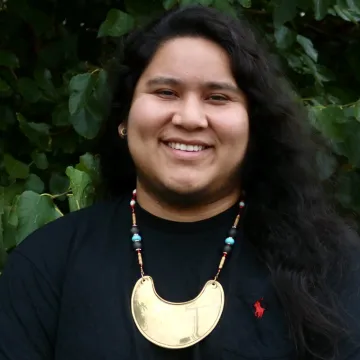
Course of Study: Educational Leadership & Policy Studies Ph.D.
Institution: University of Oklahoma
Use of Funds: Travel and honoraria to visit and interview Indigenous male faculty members across the U.S.
James “J.J.” David Wagnon, Jr. (Cherokee Nation) is a Ph.D. candidate from Tahlequah, Okla. Wagnon is also a Graduate Research Assistant in the Educational Leadership and Policy Studies Department at the University of Oklahoma. His research interests include looking into the experiences of Indigenous male professors, Indigenous masculinities, Tribal Critical Race Theory and exploring the role and impact of Historically Native American Fraternities and Sororities. Currently immersed in his dissertation, Wagnon expects to graduate with his doctoral degree by May 2024.

